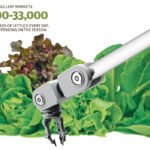
Stories by Barb Glen

COALDALE, Alta. — At first, people thought the massive greenhouse being built east of this southern Alberta town was destined for marijuana production. The timing seemed right, 18 months ago, when talk was rampant about cannabis legalization. Today, an estimated one million plants flourish under 5.5 acres of glass. They are lettuce plants — leafy, […] Read more
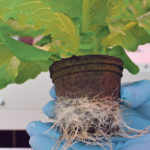
A houseplant you can eat
COALDALE, Alta. — What to do with that living lettuce purchased with its roots attached? Treat it like a houseplant, of course — a houseplant whose leaves you can eat. The 20,000 heads of lettuce produced daily at Whole Leaf greenhouse all come with roots attached, a method of ensuring freshness. “It does last longer,” […] Read more
Lettuce recall highlights benefits of greenhouses
COALDALE, Alta. — A North American-wide health alert in late November, connected to romaine lettuce contaminated with E. coli bacteria, led many retail outlets to pull romaine from their produce departments. Health officials linked the contamination to lettuce from California, but the alert affected all romaine lettuce growers including the Coaldale, Alta., Whole Leaf greenhouse, […] Read more
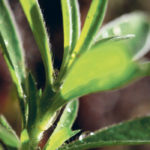
Herbicide resistant kochia here to stay
Southern Alberta farmers are told scientists have no solutions for resistance to ALS inhibitors, dicamba and glyphosate
Weed scientist and University of Alberta professor Linda Hall brought no glad pre-Christmas tidings for farmers Dec. 12 when she spoke at the Farming Smarter conference. There was no way to sugar coat the fact that kochia in southern Alberta is now resistant to groups 2, 4 and 9 herbicides — ALS inhibitors, dicamba and […] Read more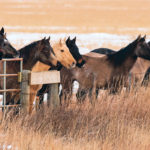
Report calls for standardizing animal welfare rules
OTTAWA — Laws governing animal welfare across Canada are inconsistent, a virtual patchwork quilt of legislation. There are federal livestock provisions within the Criminal Code, transport regulations under the Health of Animals Act, regulations for federal slaughter and for transport and still other regulations for provincial slaughter and transport, to cite a few examples. Those […] Read more
Industry wants new animal health approach
It’s hoped the formation of Animal Health Canada will reduce the risks that deadly diseases could enter the country
OTTAWA — If foot-and-mouth disease or avian influenza attacks Canadian livestock, there is a specific response plan to address it. That’s not the case for African swine fever (ASF) or any other deadly livestock disease that might threaten the livestock industry. Stakeholders in the animal health and livestock industry have long understood this gap in […] Read more
Canola seed loss similar to leaving money on the ground
A 2013 survey of canola losses at harvest showed a range from two to eight percent, according to Canola Council of Canada agronomy specialist Angela Brackenreed. A 2014 study had an even higher number. It estimated losses of up to 10 percent. That’s a lot of money left on the ground. It’s true that canola […] Read more

How far should disease control efforts go?
‘Stamping out is still a valid option for some of our diseases,’ vet says while defending the widespread killing of animals
OTTAWA — About 11,500 cattle were killed in the Jenner region of southeastern Alberta in 2016-17 after one cow was initially found infected with bovine tuberculosis. Five more infected animals were discovered in an ensuing investigation. Does Canada still have the social licence to kill so many animals to find only six with the actual […] Read more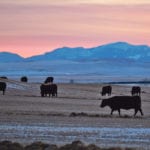
Animal neglect linked to mental health
A veterinarian draws a direct link between producers’ mental health and the well-being of the livestock in their care
OTTAWA — Stories about livestock that are found to be confined, neglected, emaciated or dead on a farmer’s property tend to generate big headlines. “I don’t understand how anyone could do that,” is the resulting refrain. Dr. Andria Jones-Bitton has heard that common response. “Frankly, if you can’t understand that, it’s probably a good thing. […] Read moreCrossbreeding quick way for producers to improve herd
There’s a quick way to improve certain characteristics in a commercial cattle herd: switch up the bull breed. “The main advantage of crossbreeding is that it is a really quick and cost effective way of improving some really economically important traits that are virtually impossible to improve by genetic selection,” said Dr. Reynold Bergen, science […] Read more




